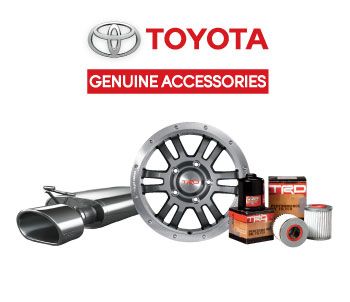
JWT Blog

A Brief History of Toyota Motor Company
Toyota is a Japanese multinational automotive manufacturer that is known worldwide for its quality, reliability, and longevity. Founded in 1937 by Kiichiro Toyoda, Toyota has grown to become one of the largest automobile manufacturers in the world, with a presence in over 170 countries.
Toyota was originally a division of Toyoda Automatic Loom Works, a company that specialized in the manufacture of weaving machines. Kiichiro Toyoda, the son of the company's founder, was interested in cars and had a dream of building a domestic car industry in Japan. In 1933, he traveled to the United States to study the auto industry. Upon his return, he convinced his father to allow him to start a division for building automobiles.
Toyota's first car, the Model AA, was introduced in 1936. The company faced many challenges in the early years, including a lack of experience and a shortage of materials due to World War II. Despite these setbacks, Toyota continued to innovate and improve its products.
In the 1960s and 1970s, Toyota began to expand its operations overseas. The company established manufacturing plants in the United States, Canada, Australia, and other countries. Today, Toyota has a global network of manufacturing and research facilities, and it continues to be a leader in the automotive industry.
One of the unique aspects of Toyota's business model is its focus on continuous improvement. The company's philosophy - Toyota Production System, emphasizes the importance of reducing waste, improving efficiency, and involving all employees in the manufacturing process. This approach has helped Toyota to become one of the most efficient and productive automotive manufacturers in the world.
Another important aspect of Toyota's business model is its commitment to quality. The company's "kaizen" philosophy, which means "continuous improvement" in Japanese, has led to a culture of excellence and attention to detail. Toyota's rigorous quality control standards have earned it a reputation for reliability and many of its vehicles have become known for their longevity and low maintenance costs.
Toyota has made many notable contributions to the automotive industry over the years. One of its most significant achievements was the development of the hybrid car. In 1997, Toyota introduced the Prius, the world's first mass-produced hybrid vehicle. Today, Toyota continues to be a leader in hybrid technology and it has expanded its lineup to include a range of hybrid and electric vehicles.
Another notable contribution from Toyota is its focus on safety. The company was one of the first to introduce safety features such as airbags and anti-lock brakes. Toyota continues to invest heavily in research and development to improve safety in its vehicles. Toyota's commitment to safety has earned it top ratings in crash tests and safety rankings.
Toyota's history, business model, and contributions to the automotive industry have made it one of the most respected and admired companies in the world. The company's focus on continuous improvement, quality, and innovation has helped it to achieve success in a highly competitive industry. As Toyota continues to expand its operations and explore new technologies, it is sure to remain a leader in the automotive industry for many years to come.
Published 5/11/2023
C. Shoemaker
Maintaining a Toyota
As a vehicle owner, you likely understand the importance of regular maintenance to ensure your car or truck operates safely and efficiently. One of the most important components of your vehicle's maintenance is brake care. Brakes are critical for stopping your vehicle, and they require attention to keep them working correctly. Neglecting brake maintenance can be dangerous and result in costly repairs or replacement down the line. Here are a few reasons why brake maintenance is so important.
Safety
The primary function of brakes is to slow down and stop your vehicle. If your brakes aren't functioning correctly, it can put you and other drivers on the road in danger. Failing brakes can result in accidents, leading to injuries or even fatalities. It is crucial to have your brakes inspected and serviced regularly to ensure they are functioning correctly.
Brake Pad Replacement
Brake pads are a critical component of your braking system. They provide the necessary friction against your vehicle's rotors to slow it down and bring it to a stop. Over time, the brake pads will wear down and need to be replaced. If you neglect to replace them, you could damage the rotors, which can be more expensive to fix. Replacing brake pads is a routine maintenance task, and it's essential to follow the manufacturer's recommendations on when to replace them.
Brake Fluid Replacement
Brake fluid is necessary for the braking system to function correctly. It helps transfer the force from the brake pedal to the brakes themselves, and it also helps regulate the temperature of the braking system. Over time, brake fluid can become contaminated, and the fluid's chemical composition can change. When this happens, the brake fluid's effectiveness can be compromised, and the brakes may not work correctly. Regular brake fluid replacement is a critical part of your vehicle's maintenance to ensure your brakes are working effectively.
Brake Inspection
Regular brake inspections are essential to catch any problems before they become more significant issues. During an inspection, a mechanic will check the brake pads, rotors, calipers, and brake lines to ensure everything is functioning correctly. They will also check for any leaks or signs of wear that could cause problems in the future. Regular inspections can help prevent costly repairs and ensure your vehicle's brakes are working correctly.
In summary, brake maintenance is an essential part of vehicle upkeep. Neglecting brake care can result in dangerous situations and costly repairs. Regular inspections, brake pad and fluid replacement, and prompt repairs are all necessary to keep your vehicle's braking system working correctly. Be sure to follow the manufacturer's recommendations for brake maintenance to keep your vehicle running safely and efficiently. By taking care of your brakes, you are investing in your safety and the longevity of your vehicle.





